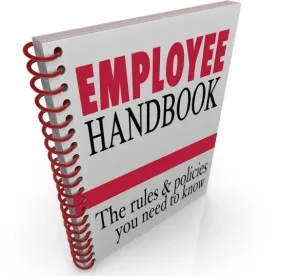When dealing with their employees’ needs for accommodations due to religious, disability, or family leave reasons, it’s necessary for employers to know some personal information about their employees. But, simply asking for information can be considered a violation of certain employment laws. What’s an employer to do? 
For example, an employer has a duty to offer reasonable accommodations for an employee’s religious beliefs. Earlier this year, in EEOC v. Abercrombie & Fitch Stores, Inc., the U.S. Supreme Court held that failing to accommodate a job applicant’s religious beliefs—despite not actually knowing what religion the job applicant practices—is a violation of Title VII of the Civil Rights Act. The Court was concerned that employers would “bury their head in the sand” and willfully ignore what they suspected was a practice based upon a religious belief. So, an employer may need to ask an applicant or its employees if their religion requires an accommodation of their job duties. Eliciting such information, however, may itself lead to a religious discrimination claim.
Similarly, an employer may have a good reason to want to know if an employee is taking medication that will affect his job performance. But the Americans with Disabilities Act (“ADA”) prohibits covered employers from making inquiries as to whether an employee has a disability unless the inquiry is shown to be both job-related and consistent with business necessity.
Asking about an employee’s family medical history, either as part of a physical examination or in casual conversation, may be a violation of the Genetic Information Non-discrimination Act of 2008 (“GINA”). Yet, employers are allowed under GINA to inquire about this information under certain circumstances, such as in accommodating a request under the Family and Medical Leave Act and similar state laws, or as part of a wellness program. There are limitations and exceptions to the exceptions, however.
How should an employer handle this conflict? First, if in doubt, call a lawyer. Employment law is constantly changing, and what may have been permissible a few years ago may not be now. If an employer has any questions about whether it may lawfully ask for particular information, a quick phone call or e-mail ahead of time may save thousands of dollars and avoid the many headaches of an employment discrimination suit.
Second, keep the discussion focused on job requirements. If the inquiry cannot be directly tied to job duties, it’s almost certainly better not to ask. So in the previous example of a religious accommodation for a job applicant, the employer should describe the essential functions of the job, and ask the applicant if she can do them. If she says she cannot due to religious reasons, the employer may then ask her about her religious beliefs so that it can discuss a reasonable accommodation. Or, suppose an employee asks for time off based on his religious beliefs. If the employer has an objective basis for questioning either the religious nature or sincerity of the belief or practice, it may question an employee about his religious beliefs. The extent of this inquiry is limited, though. The employer can gather enough information to determine whether the belief is actually religious, whether it is sincerely held, or whether the belief or practice gives rise to the need for the requested accommodation. Be aware, though, that employers who unreasonably request unnecessary or excessive corroborating evidence may be held liable for denying a reasonable accommodation or for retaliation or harassment based on the employee’s religion.
Along the same lines, asking about medications an employee takes may be permissible, but only if the inquiry is shown to be both job-related and consistent with business necessity. This typically involves employees in positions affecting public safety, such as commercial drivers, airline pilots, and police officers.
As you can see, employers must walk a fine line when making inquiries necessary to accommodate employees needs so as not to be accused of “burying their head in the sand,” while at the same time not inquiring into sensitive matters not related to business necessity. This fine line is not necessarily a straight one, so employers should feel free to ask for help when facing these issues.




 />i
/>i
